Why is McCulloch v. Maryland considered such an essential case? Prof. David Schwartz of the University of Wisconsin’s Law School explains how McCulloch v. Maryland helped identify fundamental principles of federalism.
US History
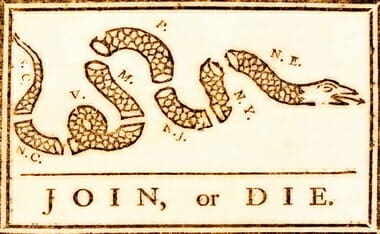

Duhmentia Joe Got Strom Thurmond To Vote Yes on the Civil Rights Act?
This is pretty much all RIGHT SCOOP:
- “I thought things had changed. I was able to literally, not figuratively, talk Strom Thurmond into voting for the Civil Rights Act before he died. And I thought well maybe there’s real progress. But hate never dies, it just hides.”
RIGHT SCOOP notes the problem with that:
There is literally, not figuratively, nothing accurate in Biden’s entire claim. Strom Thurmond voted against the Civil Rights Act in 1964 and Joe Biden didn’t graduate college until 1965. He didn’t get out of law school until 1968 and didn’t run for the US Senate until 1972. When exactly did Biden do all of this ‘convincing’?
Like I said, it’s getting harder and harder to tell the difference between Biden’s lies and Biden losing his mind. But one thing is very clear, the garbage media isn’t going to expose any of this.
FLASHBACK: In 1991, Biden Touts Work W/ Sen. Thurmond To Pass Strict Crack Cocaine Penalties
In 1991, Joe Biden bragged about working with segregationist Strom Thurmond to pass mandatory minimums for a quarter-size of crack cocaine. He praised Thurmond’s help passing laws to incarcerate Black Americans. Racial justice begins by retiring Joe Biden from public life. (YOUTUBE)
Montage: Biden’s History of Spewing Racism

A Short History of Slavery | Candace Owens
Slavery didn’t start in 1492 when Columbus came to the New World. And it didn’t start in 1619 when the first slaves landed in Jamestown. It’s not a white phenomenon. The real story of slavery is long and complex. Candace Owens explains.
This map has probably changed — drastically — with Biden’s border policies. I mean drastically! I also wish to note that as a percentage, slavery has increased in the European countries due to the influx of “refugees” from countries dominated by Islam. (And the U.S. is driving sex-slavery in a myriad of ways.)
- Today, an estimated 529,000 to 869,000 black men, women and children are still slaves. They are bought, owned, sold, and traded by Arab and Muslim masters in five African countries. This statistic estimates those enslaved in Algeria, Libya, Mauritania, and Sudan. It excludes Nigeria, for which there are no tangible estimates. (ISRAEL NATIONAL NEWS)
- As the world marks 400 years since the first recorded African slaves arrived in North America, slavery remains a modern-day scourge. [….] Africa has the highest prevalence of slavery, with more than seven victims for every 1,000 people, according to a 2017 report by human rights group Walk Free Foundation and the International Labour Office. The report defines slavery as “situations of exploitation that a person cannot refuse or leave because of threats, violence, coercion, deception, and/or abuse of power.” Trafficking of sex workers, many of them tricked into thinking they will get employment doing something else, is one of the most widespread and abusive forms of modern-day slavery. (REUTERS)
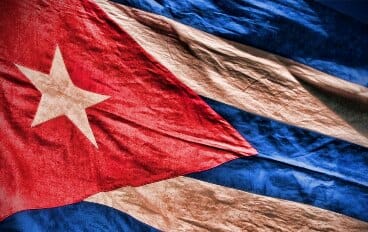
J. Waller’s CCP/Cuba Prescient Warning 2-Years Ago
MIAMI HERALD reminds us of this recent news:
Remember the Chinese spy balloon flying over the United States earlier this year, the one the Biden administration said had been capable of collecting intelligence before the U.S. shot it down off the South Carolina coast?
Now there’s a new threat coming from China. It’s a lot more blatant and it’s just 90 miles away — in Cuba.
China is establishing a spy base in Cuba, according to information first reported by the Wall Street Journal. It would be focused on the United States and give Chinese intelligence agencies a way to track electronic communication in the southwestern U.S, though the region covered would include U.S. Southern Command — in Miami-Dade County — and other military facilities.
J. Waller was on this topic early…. in this interview 2-years ago he points out the following:
Contras in Nicaragua with J Michael Waller and Michael Johns

Thomas Sowell and Carol Swain Slinging Red-Pills
This was my YouTube “rabbit hole” yesterday…. and I feel like this is a much better challenge than the cinnamon or Tide Pods type challenges.
Carol Swain get’s tagged in and does some suplexes of truth! My lingering thought is that our graceful God is opening up some young minds to the common grace of truth about history to a young generation as a “parting gift” to a man who has defended truth his whole life. The man is 92… I hope he lives more, but I surely hope after all these years, more and more young black men get red-pilled. I pray so.
These are the main videos watched below…. there are others, but these are the biggies:
- Facts About Slavery Never Mentioned In School | Thomas Sowell
- The Inconvenient Truth About the Democratic Party | Carol Swain
- The Inconvenient Truth About the Republican Party | Carol Swain
- The British Crusade Against Slavery | Sargon of Akkad
- What Most ‘Experts’ Aren’t Telling You During Black History Month | Larry Elder Show
- The Hidden Truth Behind The End Of Slavery | Thomas Sowell
- The Bitter Truth About The Arab Slave Trade In Africa | Thomas Sowell
- TRUTH about the White Slave Trade | Forgotten History
- Thomas Sowell on the Current Black Culture | Thomas Sowell
I do these from oldest to newest because in some cases, as you go through these people’s YouTube Channels, you can find the 1st time they see one of these… and then follow through their “evolution in thought” [so-to-speak] to inviting others to experience the mind opening they encountered.
FIRST, here is an OG on this topic… a red-pill passed out over a years ago:
Now This Youngster:
(3-WEEKS AGO)
He gets red-pilled at the 11:00 minute mark.
(2 WEEKS AGO)
OTHERS
From Oldest To Latest:
(1-YEAR AGO)
This beautiful young lady is red-pilled at the 8:40 mark where she mentions that “everything we been reacting to…” [all their previous channels videos] …”[this] is [her] wake-up call.”
(8-MONTHS AGO)
(7-MONTHS AGO)
(4-MONTHS AGO)
(4-MONTHS AGO)
(3-MONTHS AGO)
(3-MONTHS AGO)
(3-MONTHS AGO)
(2-MONTHS AGO)
LMAO… at the 14:20 mark the “George Washington” comment is funny!
The 26:00 minute mark is precious to me. These young men, starting out in life talking about — just finding out about “So-Well,” and asking if he has a book. Lol. I love it!
(2-MONTHS AGO)
(2-MONTHS AGO)
(2-MONTHS AGO)
(2-MONTHS AGO)
(2-MONTHS AGO)
(1-MONTH AGO)
(1-MONTH AGO)
(1-MONTH AGO)
(1-MONTH AGO)
(3-WEEKS AGO)
(2-WEEKS AGO)
(5-DAYS AGO)
(2-DAYS AGO)
(1-DAY AGO)
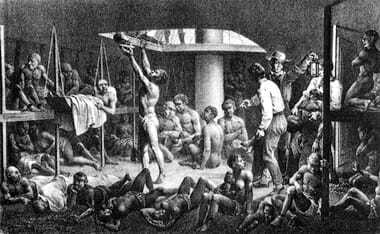
Thomas Sowell Goes Through The History of Slavery
(ORIGINALLY POSTED ON JAN 18, 2015)
- “…virtually every significant racist in American political history was a Democrat.”
Bruce Bartlett, Wrong on Race: The Democratic Party’s Buried Past (New York, NY: Palgrave MacMillan, 2008), ix;
- “…not every Democrat was a KKK’er, but every KKK’er was a Democrat.”
Ann Coulter, Mugged: Racial Demagoguery from the Seventies to Obama (New York, NY: Sentinel [Penguin], 2012), 19.
Thomas Sowell’S Full Chapter on the “Real History of Slavery”
ISOLATED and ART ADDED OF THE ABOVE:
History of Slavery, Dixie Crats,
Southern Strategy, Party Switch, etc.
- Obama’s Nazi-like church of twenty-years
- Radical Groups Support the Democrats (Even the KKK)
- Did the Party’s Switch?
- The Democrat Race Lie – by Bob Parks
Slavery
- Excerpts on Slavery (D’Souza, Williams, Johnson, and Sowell)
- Some Historical Perspective on Slavery (Medved, Roberts)
- Percentages Of Slaves Brought To America (Davis, Sowell)
- The Bible & Slavery (Me: PDF)
-
- Does the Bible Command Slavery? (Detective J. Warner Wallace)
- Obama Gets Slavery via the Bible Wrong (Dennis Prager)
- How Democrats Have Used the Bible Wrong (Alfonzo Rachel)
- Suing the Democrats Over Slavery, Lynching, and Jim Crow
- Democrats Responsible for Slavery, Republican Party for Abolition
- Fallacies of Slavery and Race
- American Slavery: Separating Fact From Myth
- Democrats Support White Supremacy
- Republicans Work to End Slavery
- US Constitution is Anti-Slavery
- Congress Celebrates the End of Slavery
- Neglected Voices of African Americans
- Reconstruction: The Good, the Bad and the Ugly
The Third Force Act, also known as the KKK or the Civil Rights Act of 1871, empowered President Ulysses S. Grant to use the armed forces to combat those who conspired to deny equal protection of the laws and, if necessary, to suspend habeas corpus to enforce the act. Grant signed the legislation on this day in 1871. After the act’s passage, the president for the first time had the power to suppress state disorders on his own initiative and suspend the right of habeas corpus. Grant did not hesitate to use this authority. (POLITICO)
Terrorist Arm of the Democrats
- Blacks AND Whites [Because Republican] Lynched by Democrat KKK
- The Southern Strategy Myth (Ann Coulter)
- Radical Groups Support the Democrats (Even the KKK)
- Democrats founded the KKK, fought the 13th, 14th and 15th Amendments, instituted Jim Crow Laws, fought the 1965 Civil Rights Act
- The Rev. Wayne Perryman On Democratic Racism
- Wayne Perryman Sues the Democrat Party for Reparations
- Great Moments in Democrat Racist History ~ Hugo Black
- Democrats and the KKK
Southern Strategy/Dixiecrats Switch
- Did The Party’s Switch? (Dinesh D’Souza, Ann Coulter)
- Frequently Asked Questions ~ National Black Republican Association (NBRA)
- The So-Called Party Switch (Weapon of A.S.S. Destruction ~ excerpt)
- Larry Elder Is Coerced to [Southern] Strategize About History
- 1957 Republicans vs. 1964 Democrats
- The “Southern Strategy” Debunked ~ Again
- The Civil Rights Legacy Democrats Stole from Republicans, Pt. 1 ~ (part 2 is HERE)
- Did Democrats and Republicans Switch Sides? (Greedy, Fascist, Racist Republicans)
- The Southern Strategy Myth and the Lost Majority: How Republicans Really Won The South
- Urban Legends: The Southern Strategy
- Urban Legends: Dixiecrats and the GOP
- Malcom X: Dixiecrats are Democrats in Disguise
- The Dixiecrat Myth
- The Myth of the Racist Republicans (This is a review of 5-books):
1) The Southern Strategy Revisited: Republican Top-Down Advancement in the South, by Joseph A. Aistrup.
2) The Rise of Southern Republicans, by Earl Black and Merle Black.
3) From George Wallace to Newt Gingrich: Race in the Conservative Counterrevolution, 1963-1994, by Dan T. Carter.
4) A Stone of Hope: Prophetic Religion and the Death of Jim Crow, by David L. Chappell.
5) The Emerging Republican Majority, by Kevin Phillips.
- Southern Strategy
- ANOTHER LIBERAL LIE EXPOSED: The Myth of the Southern Strategy
- Nixon’s Southern Strategy: The Democrat-Lie Keeping Their Control Over the Black Community
- Democrat “Party Switch” Myth Debunked
- Five Decades of Lies Help Dems Create Monolithic Black Vote
- Southern Whites’ Shift to the GOP Predates the ’60s
- Great Moments in Democrat Racist History– the 1964 vote Count
- “We have lost the South for a generation” ~ What Lyndon Johnson said, or would have said if only he had said it
- As the South abandoned its prejudices, it shifted to the GOP
- PICKET: Coulter shreds ‘southern strategy’ myth as GOP successfully runs more blacks in conservative districts
- Racist Democrats vs. Colorblind Republicans
- What Did Lee Atwater Really Say?

A Brief History of the Irish | Thomas Sowell (and More)
(Originally posted on May 2, 2017)
Excerpt from Thomas Sowell “The Economics and Politics of Race: An International Perspective“
UPDATED WITH THESE VIDEOS:
Were Irish People the “First Slaves in America”?
WHY WASN’T I TAUGHT THIS?! TRUTH about the Irish – First slaves brought to the Americas
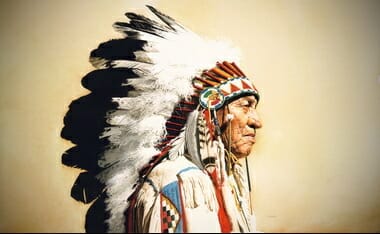
Native American History In Public School (Howard Zinn Refuted)
Indians vs. Settlers – Letter from a Concerned Parent
An in-class (6th-grade) supplement from the desk of SeanG
(Updated 6/2023 and 11/2015 | Published here 7/2010 | Originally published 4/2007 | Letter written to school in 2004)
First and foremost, the reason behind this paper is not, let me repeat, is not to incite parents to call the school and complain about what our kid’s are being taught. We must keep in mind that the teachers only teach what they are told to teach. The purpose of this paper is meant as a supplement for those who wish to deepen their conversation of history with their son or daughter that reveals both sides of the historical coin.[1] I do not wish this paper to be viewed as an apologetic[2] for the atrocities that some in the name of religion or greed inflicted on the New World. We hear of these all the time, however, this truth can be twisted and misrepresented in a way that is a tool for special interest groups as well as being a means towards a political goal, which, in California, is par for the course.
I was somewhat troubled when I was going over my child’s in class social studies notes and homework. His notes were gleaned from an in class video[3] and discussion (the social studies book[4] does a decent job at staying neutral on the subject, so this critique deals primarily with the in class discussion and video). Below (fig. 1) is an exact reproduction of my son’s notes (cannot reproduce for this posting).

At first glance, to some, this may sound standard, and some may even believe that the European man was this horrible, and that the Native-American is angelic and at “one with nature.” This assumption that one is indoctrinated with needs a critical look however. And afterwords, you, the parent, can decide what is relevant to discuss with your kids, as I have done.
The first two columns on the Native-American and Explorers side will take some time to deal with. The Native-American certainly did believe that the land was a gift from their Creator[5]; however, the litany of tribal elders in the video speaking of the land as not being “owned” is merely semantics. Most tribes did – I repeat – did fight for territorial rights and hunting grounds. Some tribes, after depleting an area of its natural resources[6] (dealt with more in-depth later) would pack up and move, only to battle for more resources elsewhere. They may not have set up picket fences, but they sure did act as if this land was theirs. The video also portrayed contradictory statements by the elders of the various tribes, in one quote it was said that the Native-American did not own the land, and in another, we are told that the Comanche owned 600 million acres.
This comparison of the Native-Americans respecting nature so much that they thought it immoral to “own land,” (column #2) compared with the column to its right mentioning that the explorers “own[ed] humans,” is another play on words. Not only a play on words, but devoid of important information that could balance the times in which these two peoples tried to co-exist. The video makes it seem like slavery was the invention of the European settler, and only he was vile enough to practice such. The video showcased Native-Americans expressing their distaste for the white-man[7] in a virulent manner. For example (and bear in mind this quote – directly from the video – can be applied to this entire thesis):
“The white-man has always had the philosophy that they are thee dominant race. That it is their manifest destiny to take over the world, so to speak. Indians did not accept this idea. They were here as stewards of the land. They were here to take care of it while they were here, but they never owned it.”[8] (Emphasis added)
The video is conveniently silent on the matter of Native-Americans owning slaves, and not only that, but treating them horribly (e.g., separating other Native-American couples and forcefully taking the women as wives [rape], murder, etc). Choctaws, Chicasaws, Cherokee, Creeks and Seminoles[9] are just a few examples of tribes that owned slaves. To be fair, the social studies book did mention that the Aztecs, at least, owned slaves (p. 67).
There were, to be sure, peaceful tribes in the pre-Columbian America, like the Hopis of the Southwest and the Slaves (not to be confused with slaves) of sub-artic Canada. Most Native-American tribes, however, were familiar, long before Columbus, with the kinds of wickedness that had beclouded European (and the Asian and African continents) history for centuries: aggression, warfare, torture, persecution, bigotry, slavery, and tyranny,[10] just to name a few. This isn’t pointing fingers; it is merely a comment on the nature of man. Historian Arthur Schlesinger, Jr., comments,
“Cruelty and destruction are not the monopoly of any single continent or race or culture.”[11]
Not only did they own slaves prior to the European settlers coming to the New World, when West Africans were introduced to the Americas, the Native-Americans even took (acquired in raids, trading, or simply bought) them as slaves. Yes, you heard me; Native-Americans owned other Indians and Blacks as slaves, even some Whites after raids. The Seminoles were somewhat tolerant, and in the nineteenth century an Afro-Indian community, via intermarriage, in the state of Florida was generated (a gorgeous mix by the way, Seminole/African-American).
KEY: So we see that the Native-Americans, contrary to my child’s in-class video, did believe in “owning” people… pre-Columbus and post-Columbus. (Native Americans had enslaved each other for millennia!)
…when the Europeans took over the American West just in time to save the Hopi Indians from genocide at the hands of the Navajo (a fact that explains why maps of Arizona show the Hopi reservation as a tiny dot in the middle of the vast Navajo reservation).
Wilfred Reilly, Hate Crime Hoax: How the Left is Selling a Fake Race War (Washington, D.C.: Regnery Publishing, 2019), 35.
warfare that was common to kinship-based societies. Pueblo warfare was not, however, limited to blood feuds. Living in and near the densely populated but resource-poor Rio Grande valley, Pueblo tribes such as the Hopis, Zunis, Piros, and Tewas fought with one another to secure control of the region’s limited supply of arable land. Such economically and territorially motivated warfare led the Pueblo Indians to make their adobe towns—called pueblos—powerful defensive fortifications. They did so by building their settlements atop steep mesas, by constructing their multistory buildings around a central plaza to form sheer exterior walls, and by limiting access to the main square to a single, narrow, easily defended passageway. Navajo and Apache raiding parties consequently found the Pueblo Indians’ settlements to be tempting but formidable targets.
The significance of warfare varied tremendously among the hundreds of pre‐Columbian Native American societies, and its meanings and implications changed dramatically for all of them after European contact. Among the more densely populated Eastern Woodland cultures, warfare often served as a means of coping with grief and depopulation. Such conflict, commonly known as a “mourning war,” usually began at the behest of women who had lost a son or husband and desired the group’s male warriors to capture individuals from other groups who could replace those they had lost. Captives might help maintain a stable population or appease the grief of bereaved relatives: if the women of the tribe so demanded, captives would be ritually tortured, sometimes to death if the captive was deemed unfit for adoption into the tribe. Because the aim in warfare was to acquire captives, quick raids, as opposed to pitched battles, predominated. Warfare in Eastern Woodland cultures also allowed young males to acquire prestige or status through the demonstration of martial skill and courage. Conflicts among these groups thus stemmed as much from internal social reasons as from external relations with neighbors. Territory and commerce provided little impetus to fight.
[….]
On the Western Plains, pre‐Columbian warfare—before the introduction of horses and guns—pitted tribes against one another for control of territory and its resources, as well as for captives and honor. Indian forces marched on foot to attack rival tribes who sometimes resided in palisaded villages. Before the arrival of the horse and gun, battles could last days, and casualties could number in the hundreds; thereafter, both Plains Indian culture and the character and meaning of war changed dramatically. The horse facilitated quick, long‐distance raids to acquire goods. Warfare became more individualistic and less bloody: an opportunity for adolescent males to acquire prestige through demonstrations of courage. It became more honorable for a warrior to touch his enemy (to count “coup”) or steal his horse than to kill him.
Although the arrival of the horse may have moderated Plains warfare, its stakes remained high. Bands of Lakota Sioux moved westward from the Eastern Woodlands and waged war against Plains residents to secure access to buffalo for subsistence and trade with Euro‐Americans. Lakota Sioux populations, unlike most Indian groups, increased in the eighteenth and early nineteenth centuries; this expansion required greater access to buffalo and thus more territory.
The column under that (#3a, and b) deals specifically with the Christian faith. Now, mind you, the video did mention that the explorers committed horrible acts against the Aztecs only after witnessing their ghastly sacrifices of other people (it didn’t mention that this included babies). After this the European explorers went about destroying those who wouldn’t become Christians – that is, rejecting their horrible religion that included human/baby sacrifice.
Although the video mentioned this in passing, it made the explorers seem worse than they were.[12] I am all for discussing the blight of Western-man and his religion, but in all fairness, this should slice both ways. From what I can tell from my child’s notes, and after viewing the video for myself, the in-class work chose “to focus on the Native Americans as the ‘victims’ because they lost their lives and culture as a result of European progress. In doing so… [it]… completely ignores a large portion of history in which both Native Americans and Europeans ‘matched atrocity for atrocity’.”[13] This is an important distinction that was made in my sons fifth-grade class, that is: a moral position was chosen and advanced, rather than history being taught as just that, history.
The last blurb in the “Explorers” side of the column (row 4, side b) reflects as well the videos hatred for the European settler, and again, the video is very sure in its quoting Native-Americans who are vehemently “anti-white-man.” We want to take over the world still, or so the video seems to say. What can you do? The last column (Row 5, side a) on the “Native-American” side mentions, “They were stewards of the land.” This is another long one, and mind you, I will list some web sites to visit for some short commentary as well.
This is similar to an old VHS video my son’s 5th grade class watched regarding American Indian and Settler relations. This video excerpt is from the video “American History for Children Video Series: Native American Life,” Narrated by Irene Bedard (Schlessinger Video Productions, 1996). Like I said, I viewed a similar VHS tape when I checked out the video in 2004 from my son’s elementary school.
We, of course, have all heard of the Native-Americans using every part of the buffalo, not wasting, caring for Mother Nature and the like. However, the whole story is conveniently left out.[14] The entire buffalo was only used in times of want. In times of plenty, some tribes would run entire herds of buffalo off of cliffs, killing hundreds to thousands at a time just for their tongues. Some tribes would burn entire forests killing many species and sometimes, entire herds of buffalo. A commentary[15] does well to expand on this theme:
From James Fenimore Cooper to Dances with Wolves and Disney’s Pocahontas, American Indians have been mythologized as noble beings with a “spiritual, sacred attitude towards land and animals, not a practical utilitarian one.”[16] Small children are taught that the Plains Indians never wasted any part of the buffalo. They grow up certain that the Indians lived as one with nature, and that white European settlers were the rapists who destroyed it.
In The Ecological Indian: Myth and History, Shepard Krech III, an anthropologist at Brown University, strips away the myth to show that American Indians behaved pretty much like everyone else. When times were bad they used the whole buffalo. When times were good, “whole herds” of buffalo might be killed only for their tongues or their fetuses.[17] Although American Indians adapted to their environment and were intimately familiar with it, they had no qualms about shaping it to their needs.
Indians set fires to promote the growth of grasses and make land more productive for the game and plants that they preferred. Sometimes fire was used carefully. Sometimes it was not. Along with the evidence that Indians used fire to improve habitat are abundant descriptions of carelessly started fires that destroyed all plant life and entire buffalo herds.[18]
Nor were American Indians particularly interested in conserving resources for the future. In the East, they practiced slash and burn agriculture. When soils became infertile, wood for fuel was exhausted, and game depleted, whole villages moved.[19] The Cherokee, along with the other Indians who participated in the Southern deerskin trade, helped decimate white-tailed deer populations.[20]Cherokee mythology believed that deer that were killed in a hunt were reanimated.
In all, contemporary accounts suggest that many Indians treated game as an inexhaustible resource. Despite vague hints in the historical records that some Crees may have tried to conserve beaver populations by allocating hunting territories and sparing young animals, Krech concludes that it was “market forces in combination with the Hudchild’s Bay Company policies [which actively promoted conservation]” that “led to the eventual recovery of beaver populations.”[21]
Those who blame European settlers for genocide because they introduced microbes that ravaged native populations might as well call the Mongols genocidal for creating the plague reservoirs that led to the Black Death in Europe.[22] Microbes travel with their hosts. Trade, desired by Indians as well as whites, created the pathways for disease.
Another interesting item that came up in the video was that of the “white man” bringing his diseases, as mentioned above and in the video. However, little is ever said about the normal lifespan of the Native-American, which was around 35 at the time due to the already present poor health, disease, dysentery and hygiene, or, lack thereof. The photo’s we have all seen of the Native-Americans during Civil War times are older mainly due to the introduction of medicine and hygiene by the European settler. New information in a paper written by Richard Steckel, a professor of economics and anthropology at Ohio State University, and published in the journal Science, has shown that the health of the Native-American was in drastic decline prior to the settler coming to the New World.[23]
Footnotes
[1] There is some adult material herein (e.g., descriptions of violence and the like), so edit accordingly.
[2] apologetic: “defending by speech or writing.” (Definition #2) Random House Webster’s Unabridged Dictionary, CD-ROM (1999).
[3] Schlessinger Video Productions, Indians of North America, Video Collection II; Bala Cynwyd: PA (1995); in the school library.
[4] A New Nation: Adventures in Time and Place, National Geographic Society/McGraw Hill Pub; New York: NY (2000)
[5] The video was very religiously entwined; I only wish that such positive representations of other faiths were allowed equal time in the classroom. Say, like, Christianity.
[6] e.g., game (animals), wood, healthy top-soil, ran species into extinction (like certain sea turtles and the like), etc.
[7] The distasteful manner in which the video represents and uses the term “white-man” (a quote) is quite inappropriate.
[8] Veronica Valarde Tiller – a Jicarilla Apapche. Quote from the in-class video.
[9] Dinesh D’ Souza, The End of Racism, The Free Press; New York: N.Y. (1995), p. 75.
[10] Paul F. Boller, Jr., Not So! Popular Myths About America from Columbus to Clinton, Oxford Univ. Press; New York: NY (1995), p. 7. (This book is a fun, interestingly invigorating read! I highly recommend it)
[11] Ibid., p. 12. Quoted from: Arthur M. Schlesinger, Jr., “Was America a Mistake?,”Atlantic Monthly (September 1992), p. 22.
[12] This is a side note for those who are of the Christian faith:
The Bible does not teach the horrible practices that some have committed in its name. It is true that it’s possible that religion can produce evil, and generally when we look closer at the details it produces evil because the individual people [“Christians”] are actually living in rejection of the tenets of Christianity and a rejection of the God that they are supposed to be following. So it [religion] can produce evil, but the historical fact is that outright rejection of God and institutionalizing of atheism (non-religious practices) actually does produce evil on incredible levels. We’re talking about tens of millions of people as a result of the rejection of God. For example: the Inquisitions, Crusades, Salem Witch Trials killed about 40,000 persons combined (World Book Encyclopedia and Encyclopedia Americana). A blight on Christianity? Certainty. Something wrong? Dismally wrong. A tragedy? Of course. Millions and millions of people killed? No. The numbers are tragic, but pale in comparison to the statistics of what non-religious criminals have committed); the Chinese regime of Mao Tse Tung, 60 million [+] dead (1945-1965), Stalin and Khrushchev, 66 million dead (USSR 1917-1959), Khmer Rouge (Cambodia 1975-1979) and Pol Pot, one-third of the populations dead, etc, etc. The difference here is that these non-God movements are merely living out their worldview, the struggle for power, survival of the fittest and all that, no natural law is being violated in other words (as atheists reduce everything to natural law – materialism). However, when people have misused the Christian religion for personal gain, they are in direct violation to what Christ taught, as well as Natural Law.
[13] “Shades of Truth,” by Jeff Bricker, found at: http://parallel.park.uga.edu/~tengles/102m/bricker.html (I highly recommend this paper as it will add to the reasons and logic behind the different historical “takes” on this issue. UPDATE: (these links are since gone) I was contacted by the author who has become more left-leaning in his later days and he asked me to remove this portion as he has excised all his previous works. I refused on the grounds that he must prove to me that what he said is untrue, after which I would remove his older work. “A True Story,” by Katie Patel, found at: http://parallel.park.uga.edu/~tengles/102m/pa##l.html (another high recommend.) UPDATE: Another dead end – keep in mind when I wrote this my oldest son was in sixth-grade. He is now a Marine.
- You should see: http://reason.com/archives/2010/02/03/the-peoples-historian
[14] “The Ecological Indian: Myth and History,” by Terry L. Anderson, from the Detroit News, reviewing a book of the same name by Shepard Krech III, October 4, 1999. Can be found at:
[15] Buffaloed: The Myth and Reality of Bison in America (12-01-2002) by Larry Schweikart:
[16] Shepard Krech III, The Ecological Indian: Myth and History, W.W. Norton & Company; New York: NY (1999), p. 22.
[17] Ibid., p. 135.
[18] Ibid., p. 119.
[19] Ibid., p. 76.
[20] Ibid., p. 171.
[21] Ibid., p. 188.
[22] For a discussion of the effect of the Mongol invasions and their effect on European epidemiology see, William H. McNeill, Plagues and Peoples, Doubleday; New York: NY (1977).
[23] “Health Of American Indians On Decline Before Columbus Arrived In New World,” This study involved 12,500 Indian skeletal remains from 65 different sites. Can be found at:
CHALLENGING THE “GENOCIDE” CHARGE
…and, THE “STOLEN LAND” CHARGE
Are Americans living on stolen land acquired by nefarious means? Jeff Fynn-Paul, professor of economic and social history at Leiden University and author of Not Stolen: The Truth About European Colonialism in the New World, dispels this misleading and destructive myth.
Example of the BRAINWASHING in the classroom:
Shocking Excerpts from A Book Used w/Third Graders Up
MRCTV intros the video thus:
…. As Moonbat Tracker writes: “These outrageous and toxic books teach kids that the United States is an institutionally racist system filled with “bloodsucking capitalists” and Anglos who “rape Hispanic culture.”
Here are a couple of quotes from the books in which the lady recites:
- “Hard drugs and drug culture is an invention of the gringo because he has no culture.”
- “We have to destroy capitalism and we have to help 5/6 of the world to destroy capitalism in order to equal all peoples’
- “The Declaration of Independence states that we the people have the right to revolution…the right to overrule the government…”
- “Any country based on capitalism is based on greed…”
Warning: There is some adult language within the video….
This is from 2011… a decade before other parents in masse, due to lockdowns, became aware of the indoctrination foisted on their children. This is a Tucson United School District (TUSD) board meeting. A parent reads from a book authorized for use from third-grade up.
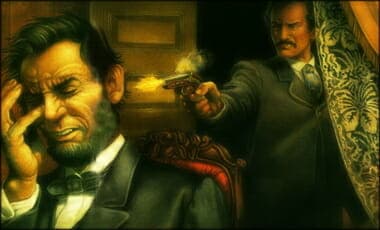
Reconstruction Retarded via Segregationists (Little Has Changed)
My response to this short video follows — with many links. I do not mean to counter the below but to merely add to it’s content our current malaise.
VIDEO DESCRIPTION:
After the Civil War, the Reconstruction era brought about hope and change in the form of citizenship and equality in America. Black men were given the right to vote, and in 1870, Hiram Revels became the first African American in the U.S. Congress when he was elected to represent Mississippi in the Senate. What followed included more than 2,000 Black office holders serving at every level of America’s political system.
Sadly, this progress was short-lived.
Black men were denied access to the ballot box and the rights they were granted at the start of the Reconstruction period slowly diminished. In result, a Black presence in Congress was completely eradicated by 1901, and it would take a full generation for it to be restored. In this episode of Black History in Two Minutes or So, we’ll discuss the African-American achievements in the political system that were systematically overturned.
Lesson. Stop voting for segregationists… otherwise known still to this day as Democrats. Who want to segregate housing to ethnicity on campuses. Who want to segregate which speech is allowed and which is not. Who want to segregate graduations, neighborhoods, etc. Even Don Lemon just said this to Vivek Ramaswamy: “when you are in black skin and you live in this country then you can disagree with me.” I was literally the only white kid in my neighborhood in Detroit, the Jefferson/Chalmers area. And? I was routinely chased, beaten up by groups of kids, I ran a lot, etc…. all because of “white skin and you live in this country” [to tweak Lemon] — do I have a more truthful voice? Or does truth reside in someone’s educated opinion more strongly? No matter his race. Truth exists outside my experience, I have to connect with it rather than making truth conform to me and my ideas of it. Which is why I say, quit voting for segregationists who want to curb the rights of the GOP rightly clarified in the 13th, 14th, and 15th Amendments. (All while the Left emboldens a new slavery.)
Heck, even mathematics is now considered racist in some school districts. Has this position been reached by “conservative” or by “leftists“? Is intersectionality causing unity or division?
(Professor Sommers’ full video is HERE)
You have to decide and vote well on it. A new Civil War is brewing over those that want to divide, segregate, and stop freedom of thought/speech. (Even reparations is divisive.) And those that want freedom to enjoy the liberties of 1870 and beyond, derailed by Democrats. Found as searching for additions to my “NRA and Black History (Don Lemon Fact-Checked)” The Civil War and Reconstruction are in the mix in that particular post.

American Racial History (David Barton)
If you have never learned about America’s racial history well, this is a must see documentary/presentation. It is long but well worth the time. The book and the video are a must see and read: “Setting the Record Straight: American History in Black & White” (BOOK | DVD)
- This is to update my PAGE on my website dealing with U.S. History and Racism: U.S. RACIAL HISTORY
- Here is a link to the large “KKK hit-card”
- That pic is embedded here: “Democratic Historic Racism: Rev. Wayne Perryman“

NRA and Black History (Don Lemon Fact-Checked)
This is with a hat-tip to:
GOP presidential candidate Vivek Ramaswamy traveled over to CNN This Morning on Wednesday to discuss his campaign. During the part of the interview about his recent speech at the NRA convention, host Don Lemon told Ramaswamy that it was “insulting” he would dare to say that black Americans enjoy equal rights.
(The longer video can be watched HERE)
NEWSBUSTERS has this:
….As Ramaswamy started to explain himself, Lemon repeated himself, “Okay, but that wasn’t fought for black people to have guns. I think—”
Again, Ramaswamy started to defend himself, “black people did not get to enjoy the other freedoms until their Second Amendment rights were secured and I think that that’s one of the lessons—”
Lemon was not happy with that explanation and started to shift the conversation away from guns to about race more generally, “But black people still aren’t allowed to enjoy the freedoms.”
After Ramaswamy told Lemon he disagreed and was “doing a disservice to our country” with those remarks, Lemon essentially told Ramaswamy to shut up, “when you are in black skin and you live in this country then you can disagree with me.”
Ramaswamy then called Lemon out for trying to use race to silence his critics and argued “Black Americans… absolutely have equal rights in this country.”
Lemon replied, “I think it’s insulting to black people, it’s insulting to me as an African-American. I don’t want to sit here and argue with you because it’s infuriating for you to put those things together. It’s not right, your telling of history is wrong.”
After Ramaswamy asked what he got wrong, Lemon returned to the straw man, “you’re making people think the Civil War was fought for black people—only for black people to get guns and for black people to have—”
[RPT BREAK]
This is a common thing I have found in Left’s and Atheist’s response to things they will say that the point you are making IS THE point of the of the discussion. So in this instance Don Lemon is saying Ramaswamy is saying that the Civil War was fought [only] to secure gun rights for black Americans. That that is it.
That is a straw man.
The Civil War was fought to secure Constitutional rights for black Americans.
SEE: What Was the Civil War Over?
I am gonna take another break within the break to give another example of how deterministic the Left thinks. This comes from my many years old post that grew beyond the debate I had with a professor of history at Michigan State U. We were told over-and-over-and-over again that THE REASON we entered Iraq was for WMDs. That is a rewriting of history.
[break-in-break]
Reasons for Entering Iraq
This next portion is taken from a series I do in responding to a local writer in a small journal. The original post is entitled, “Concepts: Are We Insane? Nope, Just You Van Huizum.“
U.N Resolutions
Yet another unfounded swipe at the Iraq War. John Van Huizum lives in a bubble where if he has come to a conclusion years ago… that’s it! History forever stays right where John wants it to stay. Here is an excerpt of John’s (click to enlarge it) article shows a complete lack of history. 
I doubt he think any differently about Vietnam based on his 1970’s conclusions. It wouldn’t matter that after 1990 — the fall of the Wall — 100,000 of thousands of Soviet era documents were now being translated and reviewed by military historians and good books based on MORE historical documents. Because these new documents support the traditional (and not the Left’s reasoning) for entering and fighting this proxy war of WWIII (the Cold War), this new information is rejected from the matrix of the left’s consciousness. But that is neither here-nor-there.
So, let’s deal with some of the contentions in John’s excerpted article. Firstly he notes that there were insufficient reasons for going to war.
May I remind him there were many U.N. Resolutions against Iraq that were almost all not met:
- UNSCR 678 – November 29, 1990
- UNSCR 686 – March 2, 1991
- UNSCR 687 – April 3, 1991
- UNSCR 688 – April 5, 1991
- UNSCR 707 – August 15, 1991
- UNSCR 715 – October 11, 1991
- UNSCR 949 – October 15, 1994
- UNSCR 1051 – March 27, 1996
- UNSCR 1060 – June 12, 1996
- UNSCR 1115 – June 21, 1997
- UNSCR 1134 – October 23, 1997
- UNSCR 1137 – November 12, 1997
- UNSCR 1154 – March 2, 1998
- UNSCR 1194 – September 9, 1998 (“Condemns the decision by Iraq of 5 August 1998 to suspend cooperation with” UN and IAEA inspectors, which constitutes “a totally unacceptable contravention” of its obligations under UNSCR 687, 707, 715, 1060, 1115, and 1154.)
- UNSCR 1205 – November 5, 1998
- UNSCR 1284 – December 17, 1999
….See Additional UN Security Council Statements…
Official U.N. resolutions aside, Bush went to Congress and made his case with these and many other points. One point being that Iraq was firing almost everyday on our fighter pilots in the no-fly zone. In the cease fire of the First Gulf War, this was enough — under international law — to RESUME aggression….
So you see, the reasons of going in were many. But the Left is so tunnel visioned that this is why they often lose in any conversation they stay in over 2-minutes.
[break-in-break over]
The War was for applying many principles of rights to and for blacks while trying to unite the country, namely freedom. And an important aspect of this is the 2nd Amendment.
The Reconstruction era was mutated under Democrats.
- The period immediately following the Civil War (1865 -1877) is known as Reconstruction. Its promising name belies what turned out to be the greatest missed opportunity in American history. Where did we go wrong? And who was responsible? Renowned American history professor Allen Guelzo has the surprising answers in this eye-opening video.
MORE EXAMPLES
Slavery
- Excerpts on Slavery (D’Souza, Williams, Johnson, and Sowell)
- Some Historical Perspective on Slavery (Medved, Roberts)
- Percentages Of Slaves Brought To America (Davis, Sowell)
- The Bible & Slavery (Me: PDF)
-
- Does the Bible Command Slavery? (Detective J. Warner Wallace)
- Obama Gets Slavery via the Bible Wrong (Dennis Prager)
- How Democrats Have Used the Bible Wrong (Alfonzo Rachel)
- Suing the Democrats Over Slavery, Lynching, and Jim Crow
- Democrats Responsible for Slavery, Republican Party for Abolition
- Fallacies of Slavery and Race
- American Slavery: Separating Fact From Myth
- Democrats Support White Supremacy
- Republicans Work to End Slavery
- US Constitution is Anti-Slavery
- Congress Celebrates the End of Slavery
- Neglected Voices of African Americans
- Reconstruction: The Good, the Bad and the Ugly
- Democrats and the KKK
The Third Force Act, also known as the KKK or the Civil Rights Act of 1871, empowered President Ulysses S. Grant to use the armed forces to combat those who conspired to deny equal protection of the laws and, if necessary, to suspend habeas corpus to enforce the act. Grant signed the legislation on this day in 1871. After the act’s passage, the president for the first time had the power to suppress state disorders on his own initiative and suspend the right of habeas corpus. Grant did not hesitate to use this authority. (POLITICO)
Terrorist Arm of the Democrats
- Blacks AND Whites [Because Republican] Lynched by Democrat KKK
- The Southern Strategy Myth (Ann Coulter)
- Radical Groups Support the Democrats (Even the KKK)
- Democrats founded the KKK, fought the 13th, 14th and 15th Amendments, instituted Jim Crow Laws, fought the 1965 Civil Rights Act
- The Rev. Wayne Perryman On Democratic Racism
- Wayne Perryman Sues the Democrat Party for Reparations
- Great Moments in Democrat Racist History ~ Hugo Black
- Democrats and the KKK
The above links are from my PAGE about America’s racial history
The Democrat Party can’t be trusted with gun bans.
Democrats history on gun bans is proof. pic.twitter.com/Y39ZAZf2jX— Dr. Interracial ?? (@sandyleevincent) April 25, 2023
[RPT BREAK OVER]
Later in the argument, Lemon burned a second straw man, accusing Ramaswamy of ignorning Reconstruction and the Civil Rights Movement. Ramaswamy never discounted those things, CNN even played a clip of him invoking Lyndon Johnson, but narrowing in on gun rights, Ramaswamy portrayed the NRA as a civil rights organization, “And you know how they got it? They got their Second Amendment rights, and they actually got the NRA played a big role in that, but today Don—”
Clearly not paying attention, Lemon shot back, “The NRA did not play a big role in that. That is a lie. That’s a lie. That’s not—the NRA did not play a big role in that.”
Going back again to race generally, Ramaswamy added “The part that I find insulting is when you say today, black Americans don’t have those rights after we have gone through Civil Rights Revolution in this country—”
Not happy with that, Lemon claimed it was Ramaswamy who was being insulting, “you are here sitting here telling an African-American about the rights and what you find insulting about the way I lived the skin I live in every day and I know the freedoms that black and white—that black people don’t have in this country and that black people do have.”
After Ramaswamy again called him out for trying to silence people, Lemon absurdly claimed he wasn’t, “I’m not saying you should express your views; but I think it’s insulting you’re sitting here—you’re sitting here, whatever ethnicity you are, splaining to me about what it is like to be black in America. I’m sorry.”
That led to Ramaswamy being the most agitated he got during the interview, “Whatever ethnicity I am? I’ll tell you what I am, I’m an Indian-American, I’m proud of it, but I think we should have this debate. Black, white, doesn’t matter on the content of the ideas.”
If the partisan labels on that question were reversed, it would be considered racist which is not surprising for the host who is always putting his foot in his mouth.
NRA
As for the NRA… even the modern Civil-Rights Movement were connected closely to their 2nd Amendment rights.
- Negroes With Guns: The Untold History of Black NRA Gun Clubs and the Civil Rights Movement (LIBERTARIAN INSTITUTE)
Race, the Second Amendment and the NRA | NOIR Season 7 Episode 2
Black NRA Supporter Confronts STUPID Kids Against Guns at March for Our Lives (Full Show)
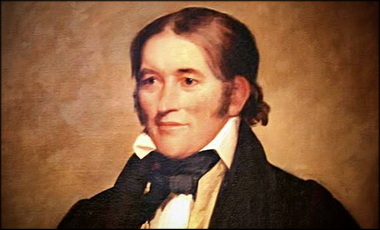
Rand Paul Invokes Davy Crockett | Not Yours to Give
Rand Paul quotes Essay from 1867 Harper magazine ‘Not Yours To Give’ Davy Crockett.
David Crockett (August 17, 1786 – March 6, 1836) was an American folk hero, frontiersman, soldier, and politician. He is commonly referred to in popular culture by the epithet “King of the Wild Frontier”. He represented Tennessee in the U.S. House of Representatives and served in the Texas Revolution.
The MISES INSTITUTE has a cataloging of this story from The Life of Colonel David Crockett, compiled by Edward S. Ellis (Philadelphia: Porter & Coates, 1884). Included in Free Market Economics: A Basic Reader, compiled by Bettina B. Greaves (Irvington-on-Hudson, NY: Foundation for Economic Education, 1975). See also the MACKINAC CENTER.
One day in the House of Representatives, a bill was taken up appropriating money for the benefit of a widow of a distinguished naval officer. Several beautiful speeches had been made in its support. The Speaker was just about to put the question when Davy Crockett arose:
“Mr. Speaker—I have as much respect for the memory of the deceased, and as much sympathy for the sufferings of the living, if suffering there be, as any man in this House, but we must not permit our respect for the dead or our sympathy for a part of the living to lead us into an act of injustice to the balance of the living. I will not go into an argument to prove that Congress has no power to appropriate this money as an act of charity. Every member upon this floor knows it. We have the right, as individuals, to give away as much of our own money as we please in charity; but as members of Congress we have no right so to appropriate a dollar of the public money. Some eloquent appeals have been made to us upon the ground that it is a debt due the deceased. Mr. Speaker, the deceased lived long after the close of the war; he was in office to the day of his death, and I have never heard that the government was in arrears to him.
“Every man in this House knows it is not a debt. We cannot, without the grossest corruption, appropriate this money as the payment of a debt. We have not the semblance of authority to appropriate it as a charity. Mr. Speaker, I have said we have the right to give as much money of our own as we please. I am the poorest man on this floor. I cannot vote for this bill, but I will give one week’s pay to the object, and if every member of Congress will do the same, it will amount to more than the bill asks.”
He took his seat. Nobody replied. The bill was put upon its passage, and, instead of passing unanimously, as was generally supposed, and as, no doubt, it would, but for that speech, it received but few votes, and, of course, was lost.
Later, when asked by a friend why he had opposed the appropriation, Crockett gave this explanation:
“Several years ago I was one evening standing on the steps of the Capitol with some other members of Congress, when our attention was attracted by a great light over in Georgetown. It was evidently a large fire. We jumped into a hack and drove over as fast as we could. In spite of all that could be done, many houses were burned and many families made homeless, and, besides, some of them had lost all but the clothes they had on. The weather was very cold, and when I saw so many women and children suffering, I felt that something ought to be done for them. The next morning a bill was introduced appropriating $20,000 for their relief. We put aside all other business and rushed it through as soon as it could be done.
“The next summer, when it began to be time to think about the election, I concluded I would take a scout around among the boys of my district. I had no opposition there, but, as the election was some time off, I did not know what might turn up. When riding one day in a part of my district in which I was more of a stranger than any other, I saw a man in a field plowing and coming toward the road. I gauged my gait so that we should meet as he came to the fence. As he came up, I spoke to the man. He replied politely, but, as I thought, rather coldly.
“I began: ‘Well, friend, I am one of those unfortunate beings called candidates, and—’
“‘Yes, I know you; you are Colonel Crockett, I have seen you once before, and voted for you the last time you were elected. I suppose you are out electioneering now, but you had better not waste your time or mine. I shall not vote for you again.’
“This was a sockdolager…I begged him to tell me what was the matter.
“‘Well, Colonel, it is hardly worth-while to waste time or words upon it. I do not see how it can be mended, but you gave a vote last winter which shows that either you have not capacity to understand the Constitution, or that you are wanting in the honesty and firmness to be guided by it. In either case you are not the man to represent me. But I beg your pardon for expressing it in that way. I did not intend to avail myself of the privilege of the constituent to speak plainly to a candidate for the purpose of insulting or wounding you. I intend by it only to say that your understanding of the Constitution is very different from mine; and I will say to you what, but for my rudeness, I should not have said, that I believe you to be honest….But an understanding of the Constitution different from mine I cannot overlook, because the Constitution, to be worth anything, must be held sacred, and rigidly observed in all its provisions. The man who wields power and misinterprets it is the more dangerous the more honest he is.’
“‘I admit the truth of all you say, but there must be some mistake about it, for I do not remember that I gave any vote last winter upon any constitutional question.’
“‘No, Colonel, there’s no mistake. Though I live here in the backwoods and seldom go from home, I take the papers from Washington and read very carefully all the proceedings of Congress. My papers say that last winter you voted for a bill to appropriate $20,000 to some sufferers by a fire in Georgetown. Is that true?’
“‘Well, my friend; I may as well own up. You have got me there. But certainly nobody will complain that a great and rich country like ours should give the insignificant sum of $20,000 to relieve its suffering women and children, particularly with a full and overflowing Treasury, and I am sure, if you had been there, you would have done just as I did.’
“‘It is not the amount, Colonel, that I complain of; it is the principle. In the first place, the government ought to have in the Treasury no more than enough for its legitimate purposes. But that has nothing to do with the question. The power of collecting and disbursing money at pleasure is the most dangerous power that can be intrusted to man, particularly under our system of collecting revenue by a tariff, which reaches every man in the country, no matter how poor he may be, and the poorer he is the more he pays in proportion to his means. What is worse, it presses upon him without his knowledge where the weight centers, for there is not a man in the United States who can ever guess how much he pays to the government. So you see, that while you are contributing to relieve one, you are drawing it from thousands who are even worse off than he. If you had the right to give anything, the amount was simply a matter of discretion with you, and you had as much right to give $20,000,000 as $20,000. If you have the right to give to one, you have the right to give to all; and, as the Constitution neither defines charity nor stipulates the amount, you are at liberty to give to any and everything which you may believe, or profess to believe, is a charity, and to any amount you may think proper. You will very easily perceive what a wide door this would open for fraud and corruption and favoritism, on the one hand, and for robbing the people on the other. No, Colonel, Congress has no right to give charity. Individual members may give as much of their own money as they please, but they have no right to touch a dollar of the public money for that purpose. If twice as many houses had been burned in this county as in Georgetown, neither you nor any other member of Congress would have thought of appropriating a dollar for our relief. There are about two hundred and forty members of Congress. If they had shown their sympathy for the sufferers by contributing each one week’s pay, it would have made over $13,000. There are plenty of wealthy men in and around Washington who could have given $20,000 without depriving themselves of even a luxury of life. The congressmen chose to keep their own money, which, if reports be true, some of them spend not very creditably; and the people about Washington, no doubt, applauded you for relieving them from the necessity of giving by giving what was not yours to give. The people have delegated to Congress, by the Constitution, the power to do certain things. To do these, it is authorized to collect and pay moneys, and for nothing else. Everything beyond this is usurpation, and a violation of the Constitution.
“‘So you see, Colonel, you have violated the Constitution in what I consider a vital point. It is a precedent fraught with danger to the country, for when Congress once begins to stretch its power beyond the limits of the Constitution, there is no limit to it, and no security for the people. I have no doubt you acted honestly, but that does not make it any better, except as far as you are personally concerned, and you see that I cannot vote for you.’
“I tell you I felt streaked. I saw if I should have opposition, and this man should go to talking, he would set others to talking, and in that district I was a gone fawn-skin. I could not answer him, and the fact is, I was so fully convinced that he was right, I did not want to. But I must satisfy him, and I said to him:
“‘Well, my friend, you hit the nail upon the head when you said I had not sense enough to understand the Constitution. I intended to be guided by it, and thought I had studied it fully. I have heard many speeches in Congress about the powers of Congress, but what you have said here at your plow has got more hard, sound sense in it than all the fine speeches I ever heard. If I had ever taken the view of it that you have, I would have put my head into the fire before I would have given that vote; and if you will forgive me and vote for me again, if I ever vote for another unconstitutional law I wish I may be shot.’
“He laughingly replied: ‘Yes, Colonel, you have sworn to that once before, but I will trust you again upon one condition. You say that you are convinced that your vote was wrong. Your acknowledgment of it will do more good than beating you for it. If, as you go around the district, you will tell people about this vote, and that you are satisfied it was wrong, I will not only vote for you, but will do what I can to keep down opposition, and, perhaps, I may exert some little influence in that way.’
“‘If I don’t,’ said I, ‘I wish I may be shot; and to convince you that I am in earnest in what I say I will come back this way in a week or ten days, and if you will get up a gathering of the people, I will make a speech to them. Get up a barbecue, and I will pay for it.’
“‘No, Colonel, we are not rich people in this section, but we have plenty of provisions to contribute for a barbecue, and some to spare for those who have none. The push of crops will be over in a few days, and we can then afford a day for a barbecue. This is Thursday; I will see to getting it up on Saturday week. Come to my house on Friday, and we will go together, and I promise you a very respectable crowd to see and hear you.’
“‘Well, I will be here. But one thing more before I say good-by. I must know your name.’
“‘My name is Bunce.’
“‘Not Horatio Bunce?’
“‘Yes.’
“‘Well, Mr. Bunce, I never saw you before, though you say you have seen me, but I know you very well. I am glad I have met you, and very proud that I may hope to have you for my friend.’
“It was one of the luckiest hits of my life that I met him. He mingled but little with the public, but was widely known for his remarkable intelligence and incorruptible integrity, and for a heart brimful and running over with kindness and benevolence, which showed themselves not only in words but in acts. He was the oracle of the whole country around him, and his fame had extended far beyond the circle of his immediate acquaintance. Though I had never met him before, I had heard much of him, and but for this meeting it is very likely I should have had opposition, and had been beaten. One thing is very certain, no man could now stand up in that district under such a vote.
“At the appointed time I was at his house, having told our conversation to every crowd I had met, and to every man I stayed all night with, and I found that it gave the people an interest and a confidence in me stronger than I had every seen manifested before.
“Though I was considerably fatigued when I reached his house, and, under ordinary circumstances, should have gone early to bed, I kept him up until midnight, talking about the principles and affairs of government, and got more real, true knowledge of them than I had got all my life before.
“I have known and seen much of him since, for I respect him—no, that is not the word—I reverence and love him more than any living man, and I go to see him two or three times every year; and I will tell you, sir, if every one who professes to be a Christian lived and acted and enjoyed it as he does, the religion of Christ would take the world by storm.
“But to return to my story. The next morning we went to the barbecue, and, to my surprise, found about a thousand men there. I met a good many whom I had not known before, and they and my friend introduced me around until I had got pretty well acquainted—at least, they all knew me.
“In due time notice was given that I would speak to them. They gathered up around a stand that had been erected. I opened my speech by saying:
“‘Fellow-citizens—I present myself before you today feeling like a new man. My eyes have lately been opened to truths which ignorance or prejudice, or both, had heretofore hidden from my view. I feel that I can today offer you the ability to render you more valuable service than I have ever been able to render before. I am here today more for the purpose of acknowledging my error than to seek your votes. That I should make this acknowledgment is due to myself as well as to you. Whether you will vote for me is a matter for your consideration only.’
“I went on to tell them about the fire and my vote for the appropriation and then told them why I was satisfied it was wrong. I closed by saying:
“‘And now, fellow-citizens, it remains only for me to tell you that the most of the speech you have listened to with so much interest was simply a repetition of the arguments by which your neighbor, Mr. Bunce, convinced me of my error.
“‘It is the best speech I ever made in my life, but he is entitled to the credit for it. And now I hope he is satisfied with his convert and that he will get up here and tell you so.’
“He came upon the stand and said:
“‘Fellow-citizens—It affords me great pleasure to comply with the request of Colonel Crockett. I have always considered him a thoroughly honest man, and I am satisfied that he will faithfully perform all that he has promised you today.’
“He went down, and there went up from that crowd such a shout for Davy Crockett as his name never called forth before.
“I am not much given to tears, but I was taken with a choking then and felt some big drops rolling down my cheeks. And I tell you now that the remembrance of those few words spoken by such a man, and the honest, hearty shout they produced, is worth more to me than all the honors I have received and all the reputation I have ever made, or ever shall make, as a member of Congress.
“Now, sir,” concluded Crockett, “you know why I made that speech yesterday.
“There is one thing now to which I will call your attention. You remember that I proposed to give a week’s pay. There are in that House many very wealthy men—men who think nothing of spending a week’s pay, or a dozen of them, for a dinner or a wine party when they have something to accomplish by it. Some of those same men made beautiful speeches upon the great debt of gratitude which the country owed the deceased—a debt which could not be paid by money—and the insignificance and worthlessness of money, particularly so insignificant a sum as $10,000, when weighted against the honor of the nation. Yet not one of them responded to my proposition. Money with them is nothing but trash when it is to come out of the people. But it is the one great thing for which most of them are striving, and many of them sacrifice honor, integrity, and justice to obtain it.”




